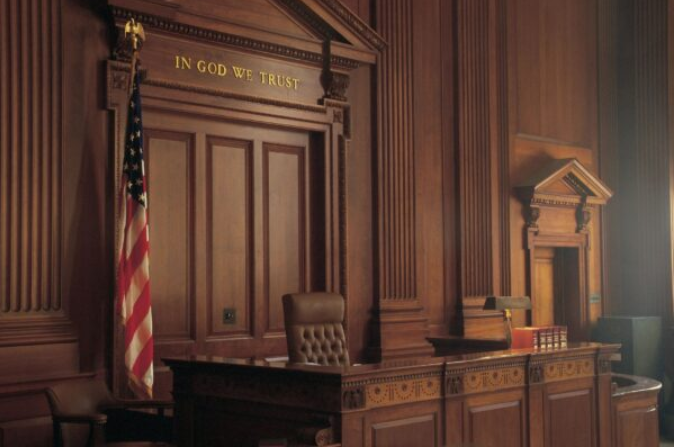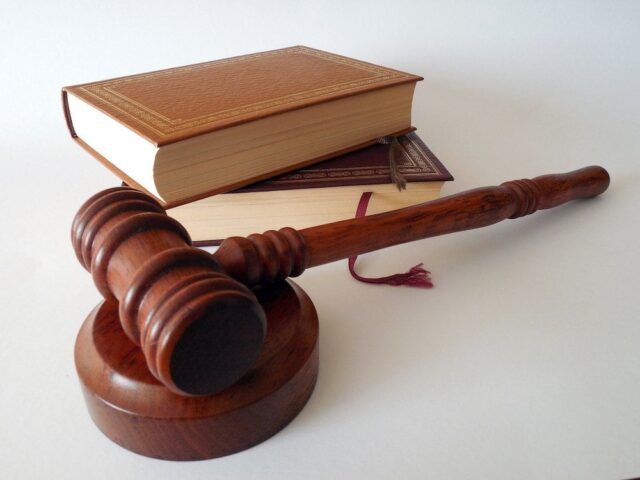Criminal Possession of a Forged Instrument is one of the most common yet serious white-collar crimes in New York. This offense typically arises when a person is found in possession of any type of forged or fraudulent document or writing. The implications of a conviction can be severe, leading to a permanent criminal record and significant penalties, including imprisonment.
Understanding the nature of these charges is essential, especially if you find yourself facing such allegations. If you’re in Nassau County or Long Island, having an experienced Long Island fraud defense lawyer by your side can make a crucial difference in your case.
Common Forged Documents Leading to Possession of Forged Instrument Charges on Long Island
The types of documents and instruments that can lead to charges of Criminal Possession of a Forged Instrument are numerous. Here are ten common examples that could result in an arrest and prosecution:
- Driver’s Licenses (Fake IDs): Often used by underage individuals to gain access to restricted venues or purchase alcohol.
- Passports: Forged passports can be used for identity theft or illegal travel.
- Credit Cards or Debit Cards: Possessing forged or stolen cards can lead to serious charges, particularly if they are used for fraudulent purchases.
- Currency (Counterfeit Money/Bills): Creating or using fake currency is a federal crime that can lead to severe penalties.
- Checks (Forged or Altered Checks): Altering a check or using a forged one for payment can lead to charges of forgery and theft.
- Social Security Cards: Forged social security cards can be used for identity theft and other fraudulent activities.
- License Plates: Possessing or using a forged license plate can lead to vehicle-related charges.
- Vehicle Registrations: Forged vehicle registrations can complicate matters, especially in cases involving stolen cars.
- COVID-19 Vaccine Cards: The use of forged vaccine cards has become more prevalent during the pandemic, leading to legal repercussions.
- Medical Prescriptions: Forging doctor prescriptions for controlled substances is a serious crime that can lead to charges of fraud and drug-related offenses.
The Three Degrees of Criminal Possession of a Forged Instrument in New York Explained
In New York, Criminal Possession of a Forged Instrument is classified into three degrees, each carrying its own set of penalties and implications. It’s crucial to understand these distinctions, as the severity of the charges can significantly affect your defense strategy.
Criminal Possession of a Forged Instrument in the Third Degree (NY Penal Law 170.20)
Penalties: While this is the least severe degree of Criminal Possession of a Forged Instrument, it is classified as a Class A Misdemeanor. A conviction can result in up to 1 year in jail, 3 years of probation, a combination of both, restitution, and a $1,000 fine.
Definition: Criminal Possession of a Forged Instrument in the Third Degree occurs when a person:
- Possesses a forged instrument,
- Knows that it is forged, and
- Acts with intent to defraud, deceive, or injure another.
A “forged instrument” refers to any writing that has been falsely made, completed, or altered. This can include documents such as fake IDs, counterfeit currency, or altered checks. A “written instrument” includes any writing that conveys information or represents a symbol of value or identification.
Legal Implications: To secure a conviction for this crime, the prosecution must prove that the accused knew the item was forged at the time of possession and intended to use it for deceptive purposes.
For example, this offense is commonly charged when someone uses a fake ID to enter a nightclub or purchase alcohol underage.
Criminal Possession of a Forged Instrument in the Second Degree (NY Penal Law 170.25)
Penalties: This charge is classified as a Class D Felony, punishable by up to 7 years in prison, 5 years of probation, a combination of both, restitution, and a $5,000 fine.
Definition: Criminal Possession of a Forged Instrument in the Second Degree occurs when an individual commits the Third Degree offense but with a more serious type of document. This includes:
- A deed
- A contract or legal agreement
- A will or codicil
- A credit card or debit card
- A commercial instrument
- A public record
- A government-issued document
- A medical prescription
- An item designed to symbolize value, such as a token or subway metro card.
Legal Implications: If an individual possesses two or more forged credit or debit cards, there is a presumption that they knew these cards were forged and intended to defraud, deceive, or injure another. This presumption can complicate your defense strategy, particularly if you’re accused of possessing these items while engaged in other criminal activity.
For instance, if you were arrested for DWI and found with two forged credit cards in your wallet, your attorney might argue that the prosecution lacks evidence to prove your intent to defraud based on the circumstances of your arrest. Conversely, if you are caught using one forged credit card at a store and a second forged card is found in your possession, the presumption of intent will be harder to rebut.
Criminal Possession of a Forged Instrument in the First Degree (NY Penal Law 170.30)
Penalties: This is the most serious degree of Criminal Possession of a Forged Instrument. It is classified as a Class C Felony, punishable by up to 15 years in prison, 5 years of probation, restitution, and a $5,000 fine. Even first-time offenders can face severe consequences.
Definition: Criminal Possession of a Forged Instrument in the First Degree occurs when a person commits the Third Degree offense with particularly serious documents, including:
- Money
- Stamps
- Securities
- Stocks
- Bonds
- Any instrument of value issued by the government
- Any instrument representing interests in or claims against a corporation or organization or its property.
Additional Charges Related to Forged Instruments
Often, possessing forged documents is not the only charge you may face. When prosecutors suspect that your actions are part of a larger scheme or indicate intent to defraud, they may add other offenses to your charges. This could significantly increase the potential penalties you are facing. These additional charges may include:
- Grand Larceny: If the value of the items involved exceeds $1,000, you could be charged with grand larceny, a serious felony.
- Forgery: If you are accused of creating a forged document, you may face forgery charges alongside possession charges.
- Criminal Possession of Stolen Property: If the forged items are also considered stolen, you could face additional charges.
- Identity Theft: Using forged documents to impersonate someone else can lead to identity theft charges, which carry severe penalties.
- Scheme to Defraud: This charge can apply if you are found to be part of a broader fraudulent scheme involving multiple acts of deception.
Why You Need an Experienced Long Island Forged Document Defense Attorney
When you’re confronted with serious charges like Criminal Possession of a Forged Instrument, navigating the legal system can feel overwhelming. An experienced Long Island Forged Instrument criminal defense attorney can be a great ally. Here’s how they can help:
Understanding the Law: An experienced attorney specializes in the intricate laws surrounding forged instruments in New York. They stay current on legal changes and precedents that could impact your case. With this deep knowledge, they can interpret the law correctly and identify relevant statutes. This means they can clearly explain the potential consequences of your charges, helping you grasp the full scope of your situation.
Moreover, they can clarify the distinctions between different degrees of the charge and explain the specific requirements the prosecution must meet to secure a conviction. Understanding these nuances is crucial for making informed decisions.
Crafting a Defense Strategy: No two criminal cases are the same. An experienced attorney understands this and avoids a one-size-fits-all approach. They will conduct a thorough investigation into your case. This includes reviewing evidence, interviewing witnesses, and assessing law enforcement procedures.
Based on their findings, they can create a customized defense strategy. This strategy might highlight weaknesses in the prosecution’s case, present alternative explanations, or use defenses such as lack of knowledge or intent. By crafting a robust defense, they significantly improve the chances of a favorable outcome.
Negotiating with Prosecutors: Skilled attorneys bring invaluable negotiation experience to the table. They understand the ins and outs of plea bargaining and know how to negotiate effectively with prosecutors on your behalf.
An experienced Long Island fake document criminal defense attorney might be able to secure reduced charges or lighter sentencing options. They can also explore alternative sentencing programs, such as community service or rehabilitation, which can prevent a conviction from appearing on your record. Their established relationships with prosecutors and insight into their strategies can make a significant difference in negotiations.
Representing You in Court: If your case goes to trial, having a knowledgeable forged document and fraud criminal defense attorney is crucial. They will be ready to present a compelling case to the judge and jury. This preparation includes organizing evidence, preparing witnesses, and making persuasive arguments.
A seasoned defense attorney knows how to challenge the prosecution’s evidence effectively. They can strategically cross-examine witnesses to expose inconsistencies or credibility issues. Their courtroom experience allows them to anticipate objections and respond effectively, which can greatly influence the outcome of your trial.
Protecting Your Rights: Your rights are paramount throughout the legal process. A qualified criminal defense attorney will ensure that your constitutional rights are upheld from your arrest to the conclusion of your trial.
They will examine whether law enforcement followed proper procedures during your arrest and whether any evidence was obtained illegally. If any rights violations occurred, your attorney can file motions to suppress evidence or even dismiss charges, strengthening your defense.
Understanding Sentencing Consequences: In addition to defending against charges, an experienced attorney can clarify the potential sentencing consequences if you are convicted. Knowing what penalties you might face is vital for making informed decisions throughout the legal process.
Your attorney can explain the differences between misdemeanors and felonies, the possible jail or prison time, fines, restitution, and probation. This information is crucial for making informed choices about plea offers and trial proceedings.
Emotional Support and Guidance: Facing criminal charges is incredibly stressful. An experienced attorney offers not only legal support but also emotional guidance. They can help alleviate some of the anxiety that comes with the legal process by keeping you informed at every step and providing reassurance.
Their expertise can help you feel more confident about your case and the decisions you need to make. Knowing you have someone in your corner can make a significant difference in managing stress during this challenging time.
Resource Access and Investigative Support: A seasoned criminal defense attorney has access to a network of resources, including expert witnesses, investigators, and forensic specialists. These professionals provide critical support in building your defense.
For example, forensic experts can analyze evidence to demonstrate that it was tampered with or misinterpreted. Private investigators can uncover facts that bolster your case. This added layer of support can enhance your defense strategy and offer a comprehensive approach to your situation.
Take the First Step Toward a Strong Defense with a Nassau County Forged Document Criminal Defense Attorney
If you or someone you know has been arrested for Criminal Possession of a Forged Instrument or any related white-collar crime in Nassau County or elsewhere on Long Island, it’s imperative to seek legal representation immediately. Attorney Ramy Louis has extensive experience handling these serious charges and understands their complexities.
As a former senior Nassau prosecutor, Attorney Louis knows the tactics used by the prosecution and can anticipate their moves. He will aggressively defend your rights to secure the best possible outcome for your case.
Don’t wait—your future is at stake. Contact The R.M.L. Law Firm, PLLC today for a free consultation with our experienced Long Island forged document defense attorneys. With a commitment to providing effective and responsive legal services, we are here to support you every step of the way. Contact us to schedule your free consultation.





